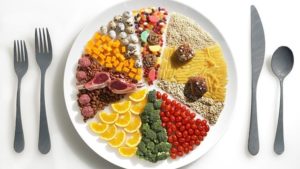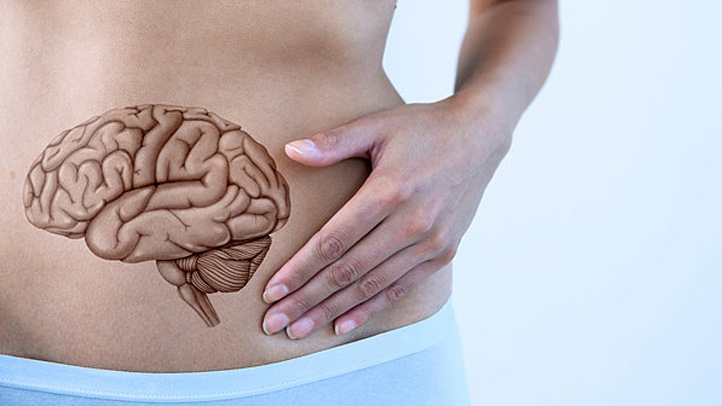Our gut health and mental health are intrinsically connected. In today’s world, it is more essential than ever to take care of physical health as well as our mental and spiritual health. For almost the past five years self-care has been trending; a quick Pinterest or Instagram search will pull up thousands of ways that you can take care of yourself. From meditation to going on walks with your family, friends, or pets to listening to music you love, eating foods that nourish you, or accomplishing daily tasks, the ways that you can improve your mood are boundless. One other way to heal both your body and mind is to bring your gut health into balance (unsurprisingly, many of the touted self-care remedies do just that).
Today we will take a look at the gut/mind connection and foods that you can start eating today and what foods to eat more mindfully that will help to bring about better moods, improved immunity, and an overall balance to your life.
A Balanced Gut = A Balanced Mind
We know that “The gut or enteric nervous system (ENS), consists of two thin layers of over 100 million nerve cells that line the gastrointestinal tract from the esophagus to rectum and communicate with the brain. A higher-than-normal percentage of people who suffer from gut health conditions such as IBS, diarrhea, chronic bloating, constipation, etc, have been found to also suffer from anxiety and depression.
Recent research is redefining how we see gut health in relation to mood disorders.
It used to be that anxiety and depression were seen to cause gut health issues, however, we are finding that it is actually the other way around.
To maintain a healthy gut, the bacteria in your gut must be balanced. If a person is consuming too many sugary foods or even just one type of food group, the gut will become unbalanced and you may notice a shift in your moods. This mood shift is caused by your gut feeding off of the sugary foods you are feeding it and telling your brain it needs more. This becomes a vicious cycle of craving and consuming sugary or processed foods that many of us know all too well.
Knowing this, functional medical providers across the states (ourselves included) are getting to the root of many mood disorders by starting first with checking a person’s gut health. One of the quickest ways to bring about balance to an unhealthy gut is by adjusting your diet*. Let’s take a look at what foods can help to bring about positive changes for both your mind and body and what foods should be limited to decrease “bad” bacteria and changes in mood.
Foods To Improve Mood
- Fish. Fatty fish such as salmon, tuna, and albacore are rich in Omega 3s and have been linked to lower levels of depression. Try adding fish into your diet at least once a week.
- Spinach and other leafy greens. Spinach and other leafy greens like swiss chard are chock full of magnesium, a mineral that most of the American population is deficient in and has been proven to reduce anxiety. Add greens to a smoothie, sandwich or omelet to get in that much-needed magnesium.
- Fermented foods. Fermented foods like yogurt, kefir, kimchi, and sauerkraut are fantastic sources of probiotics. Probiotics can bring the gut into balance as well as increase serotonin levels and reduce depression and anxiety. Before buying a probiotic contact one of our gut health specialists in Oak Brook, IL to see which kinds of probiotics are best suited for you.
- Blueberries. Blueberries are filled with antioxidants and can make you feel less “blue”. They have also been shown to protect the brain from aging and improve memory.

Foods That Can Increase Mood Disorders
- Sugar. While sugar may give us that “hit” of energy at first, it brings a roller coaster of blood sugar levels and emotions that aren’t pretty. Diets that are high in sugar cause inflammation in the body and brain, which puts you at a higher risk for depression. Instead of reaching for a candy bar for energy or comfort, try going for a walk, taking a bath, or choosing a piece of fruit instead.
- Refined & Processed Carbohydrates. Similar to sugar, processed carbs will put your body on a roller coaster. After the initial insulin rush, these foods will leave you feeling irritated and foggy. Be mindful when consuming foods that come from a box or bag, and always try to choose wholesome, natural foods with the least amount of processing.
- Caffeine. Too much caffeine can cause anxiety and depression in many people. Our bodies are already taxed with the overload of information, processed foods, activities, etc,. There’s no reason to add caffeine to the mix. Consider limiting your caffeine intake to one 8 oz cup of coffee per day, and avoid consuming caffeinated sodas and energy drinks whenever possible.
- Alcohol. If you have a history of mood disorders, have been feeling depressed lately, or have a tendency towards addiction, alcohol is not your friend. Alcohol is a proven depressant and can exacerbate mood disorders. Try a mocktail instead, so that you can still have a “fun” beverage without all the negative repercussions.
We hope that this guide will help you on your journey to gut health and balance your moods. If you have or are currently experiencing depression, anxiety, or would like to learn more about improving your gut health, please contact one of our functional medicine providers in Oak Brook, IL today.
*Talk with a functional medicine provider at Vitality Family Health in Oak Brook, IL before making any major diet changes.

